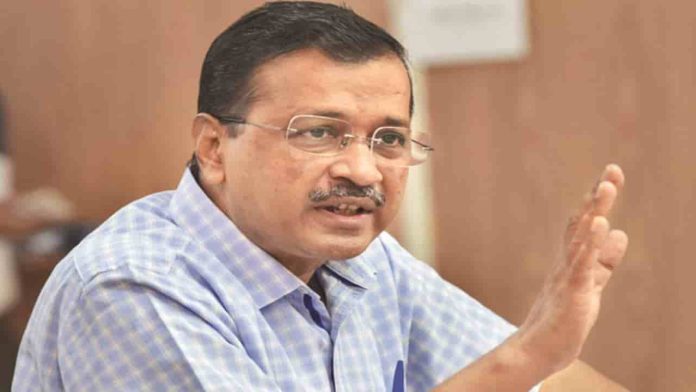The arrest of Delhi Chief Minister Arvind Kejriwal in the so-called liquor scam is nothing short of a landmark case, politically and legally. Even as his supporters claim it is an act of political vendetta, there are signs of a sinister move to impose President’s Rule in the run up to the general elections. What are the possibilities?
By Dilip Bobb
In keeping with his image and activist background, Delhi’s combative chief minister argued his own case, telling the Special Judge Kaweri Baweja in a Delhi court that the Enforcement Directorate (ED) was trying to create a smokescreen to crush the Aam Aadmi Party (AAP) which he heads by conjuring up an extortion racket. He targeted the BJP by pointing out that a co-accused in the case turned approver, Sarath Chandra Reddy, had contributed Rs 55 crore to the BJP via electoral bonds, and was given bail immediately after. Meanwhile, two other key figures in the excise case, Raghava Magunta Reddy and his father, Magunta Srinivasulu Reddy, are campaigning for the BJP’s ally TDP. Raghava also turned approver and his “testimony” is a key element in the ED’s case against Kejriwal.
What adds to the intrigue is that two Western powers—America and Germany—along with the United Nations, have intervened in the case—another historic first, demanding a free and fair trial. A day after India said Washington’s call for fairness in legal cases related to Opposition parties was “unwarranted” and “unacceptable”, the United Nations waded into the controversy, saying the world hopes everyone is able to vote in the country’s parliamentary elections “in a free and fair atmosphere.”
For such external interventions in a case involving the chief minister of a union territory, where many aspects of governance are in the hands of a centre-appointed Lt Governor, is not just unprecedented, it is indicative of the views in the outside world that this is a politically motivated act and does not represent a level-playing field when it comes to the general elections due in a few weeks. The fear that the central government was plotting to impose central rule was amplified by AAP minister Atishi, who said any such move would be an act of “political vendetta”.
Delhi is a unique political entity because it is also the capital which houses the core levers of power, from Parliament to the Prime Minister and his cabinet, leading to powers divided on many fronts, from security and public services to development and Municipal authorities, with authority divided between the elected chief minister and the Lt. Governor. The Lt Governor, VK Saxena, has reportedly already written to the centre on the “Constitutional crisis” that has arisen with Kejriwal insisting he is still the chief minister and running the Delhi government from judicial custody. The fact that the Lok Sabha elections are just around the corner only adds to the urgency and the fallout if President’s Rule is imposed under Article 239AB of the Constitution. Already, AAP ministers and workers have taken to the streets as has the collective Opposition under the INDIA banner.
Under Article 239 AB, the President can impose President’s Rule based on a report from the Lieutenant Governor “that a situation has arisen in which the administration of the National Capital Territory cannot be carried on in accordance with the provisions of article 239AA [which establishes the Delhi Government, its role and function]”. That is almost inevitable, considering the circumstances and the timing of the arrest. There is no provision in Article 239 AB to obtain parliamentary approval. All powers would be in the hands of the Lt Governor, removing a major obstacle to the BJP’s own projection of winning 370 seats.
Kejriwal’s feisty persona and the electoral success of AAP in Delhi and Punjab has fuelled his ambitions to spread AAP’s presence in other states. In fact, the current case against him is to do with allegedly accepting Rs 100 crore to fund AAP’s campaign in the Goa elections. The party has also received two constituencies—Bharuch, Jamnagar—in Gujarat, and Kurukshetra in Haryana under the seat-sharing deal with the Congress. Separately, the AAP has also declared its candidates from Guwahati, Dibrugarh and Sonitpur Lok Sabha constituencies in Assam.
More importantly, AAP is basically a one-man party. Kejriwal is its face and motivating force, and with him in judicial custody, or Delhi under President’s Rule, it will constitute a huge blow for AAP’s political aspirations. Any such move will also unite what seems to be a divided Opposition. The courts may be putting Kejriwal under legal scrutiny, but politically, if President’s Rule is imposed, he could still prove to be a bigger thorn in the side of the central government.
As his past indicates, he is more of a rebel when there is a cause.


